Hypothyroidism: Three Must-Have Nutrients in Your Diet
Managing hypothyroidism requires a holistic approach, including proper nutrition. Ensuring adequate intake of iodine, selenium, and zinc through a balanced diet can significantly improve thyroid function and overall well-being. By including iodine-rich foods like iodized salt and seaweed, selenium-rich sources like Brazil nuts and sunflower seeds, and zinc-containing foods like chickpeas and quinoa, individuals with hypothyroidism can better manage their condition. Additionally, avoiding processed foods, alcohol, and excessive caffeine can further support thyroid health.


Understanding Hypothyroidism
Hypothyroidism is a condition in which the thyroid gland does not produce enough thyroid hormones, leading to a slowed metabolism, fatigue, weight gain, dry skin, and other health issues. The thyroid plays a crucial role in regulating metabolism, energy production, and overall bodily functions. Ensuring a diet rich in essential nutrients can help manage hypothyroidism effectively. Among these, iodine, selenium, and zinc are particularly vital for optimal thyroid function.
Prevalence of Hypothyroidism: India and Global Data
Hypothyroidism is a widespread health issue affecting millions worldwide. According to a study published in the Indian Journal of Endocrinology and Metabolism (2023), the prevalence of hypothyroidism in India is approximately 10-12% of the population, with a higher occurrence in women compared to men. Globally, data from the American Thyroid Association suggest that around 5% of the world’s population suffers from hypothyroidism, with a significant number of undiagnosed cases.
Recent research conducted by the International Journal of Environmental Research and Public Health (2024) highlights a rise in hypothyroidism cases due to dietary deficiencies and environmental factors, particularly exposure to endocrine-disrupting chemicals (EDCs). In India, studies have shown that iodine deficiency disorders remain a key public health concern, with some regions still reporting insufficient iodine intake despite government initiatives.
How Hypothyroidism Affects Human Health
Hypothyroidism impacts multiple aspects of health and can lead to:
Metabolic Slowdown: Reduced thyroid hormones lower the body’s metabolic rate, leading to weight gain and difficulty losing weight.
Fatigue and Weakness: Insufficient thyroid hormones result in constant tiredness, muscle weakness, and sluggishness.
Cognitive Impairment: Hypothyroidism can cause brain fog, difficulty concentrating, and memory problems.
Cardiovascular Issues: It can contribute to high cholesterol levels, increasing the risk of heart disease.
Digestive Problems: Slow metabolism affects digestion, causing constipation and bloating.
Skin and Hair Issues: Dry skin, brittle nails, and hair thinning or hair loss are common symptoms.
Mood Disorders: It can lead to depression, irritability, and mood swings.
Reproductive Health Issues: In women, it can cause irregular menstrual cycles and fertility issues.
Three Must-Have Nutrients in Your Diet
1. Iodine: Essential for Thyroid Hormone Production
Iodine is a crucial mineral required for the synthesis of thyroid hormones, thyroxine (T4) and triiodothyronine (T3). A deficiency in iodine can lead to goiter and exacerbate hypothyroidism symptoms. According to the World Health Organization (WHO), approximately 2 billion people worldwide suffer from iodine deficiency, making it a significant public health concern.
Sources of Iodine:
Iodized salt: The easiest and most widely available source of iodine.
Seaweed: Varieties such as nori, kelp, and wakame are rich in iodine.
Strawberries: An excellent plant-based source of iodine, contributing to thyroid health.
Recommended Intake: The recommended daily intake of iodine for adults is around 150 micrograms (mcg). Pregnant and lactating women require higher amounts, ranging between 220–290 mcg per day (National Institutes of Health, 2022).
2. Selenium: A Key Antioxidant for Thyroid Health
Selenium is an essential trace mineral that plays a pivotal role in the activation of thyroid hormones. It aids in converting T4 into the more active T3 form, which is crucial for proper metabolic function. Additionally, selenium has antioxidant properties that protect the thyroid gland from oxidative stress and inflammation.
Benefits of Selenium in Hypothyroidism:
Supports the conversion of T4 to active T3 hormone.
Protects against thyroid tissue damage by reducing oxidative stress.
Enhances immune function, reducing the risk of autoimmune thyroid diseases like Hashimoto’s thyroiditis.
Sources of Selenium:
Brazil nuts: The richest natural source of selenium; consuming just two Brazil nuts daily provides the required selenium intake.
Sunflower seeds: Soaking one teaspoon of sunflower seeds overnight and consuming them in the morning can boost selenium levels.
Lentils: A great plant-based source of selenium and should be consumed regularly but not in mixed varieties.
Quinoa: A nutritious grain that provides selenium along with protein and fiber.
Recommended Intake: The daily recommended selenium intake for adults is 55 mcg, while pregnant and breastfeeding women require up to 60–70 mcg (National Institutes of Health, 2022).
3. Zinc: Crucial for Thyroid Hormone Synthesis
Zinc is an essential mineral that plays a critical role in the production and regulation of thyroid hormones. It contributes to the conversion of T4 to T3 and supports immune function, which is important for those with hypothyroidism, especially autoimmune thyroid disorders.
Benefits of Zinc in Hypothyroidism:
Supports thyroid hormone synthesis and conversion.
Aids in immune function and protects against inflammation.
Helps regulate metabolic rate and prevents hair loss, a common symptom of hypothyroidism.
Sources of Zinc:
Chickpeas: A great plant-based source of zinc, providing essential protein and fiber.
Pumpkin seeds: Rich in zinc and healthy fats; an excellent snack for thyroid health.
Lentils: A good source of zinc, promoting overall well-being.
Quinoa: A nutrient-dense grain that provides zinc, selenium, and protein.
Recommended Intake: The daily recommended zinc intake for adults is 8 mg for women and 11 mg for men (National Institutes of Health, 2022).
Foods to Avoid for Better Thyroid Health
While incorporating essential nutrients, it is equally important to avoid foods that negatively impact thyroid function:
Alcohol and Caffeine: These substances interfere with thyroid hormone absorption and disrupt metabolism.
Packaged and Processed Foods: These often contain high amounts of sodium but minimal iodine, leading to an imbalance in thyroid function.
Refined Grains and Sugars: These contribute to gut inflammation, affecting nutrient absorption and thyroid health.
Managing hypothyroidism requires a holistic approach, including proper nutrition. Ensuring adequate intake of iodine, selenium, and zinc through a balanced diet can significantly improve thyroid function and overall well-being. By including iodine-rich foods like iodized salt and seaweed, selenium-rich sources like Brazil nuts and sunflower seeds, and zinc-containing foods like chickpeas and quinoa, individuals with hypothyroidism can better manage their condition. Additionally, avoiding processed foods, alcohol, and excessive caffeine can further support thyroid health.
Team - NutrifyTheWorld
Disclaimer:
The information provided on NutrifyTheWorld blog is for educational and informational purposes only. It is not intended as a substitute for professional medical advice, diagnosis, or treatment. Always seek the advice of your physician or other qualified health provider with any questions you may have regarding a medical condition. Never disregard professional medical advice or delay in seeking it because of something you have read on NutrifyTheWorld blog. The opinions expressed by the experts in this article are their own and do not necessarily reflect the views of NutrifyTheWorld or its affiliates. Product recommendations are based on research and personal experiences, but individual results may vary. Before using any product mentioned on NutrifyTheWorld blog, please read the label and consult with a healthcare professional to ensure it is suitable for your specific needs and conditions. We do not endorse or promote any specific brand or product mentioned on NutrifyTheWorld blog. Any reliance you place on the information provided is at your own risk. NutrifyTheWorld shall not be liable for any loss or damage arising from the use of information on its blog.


